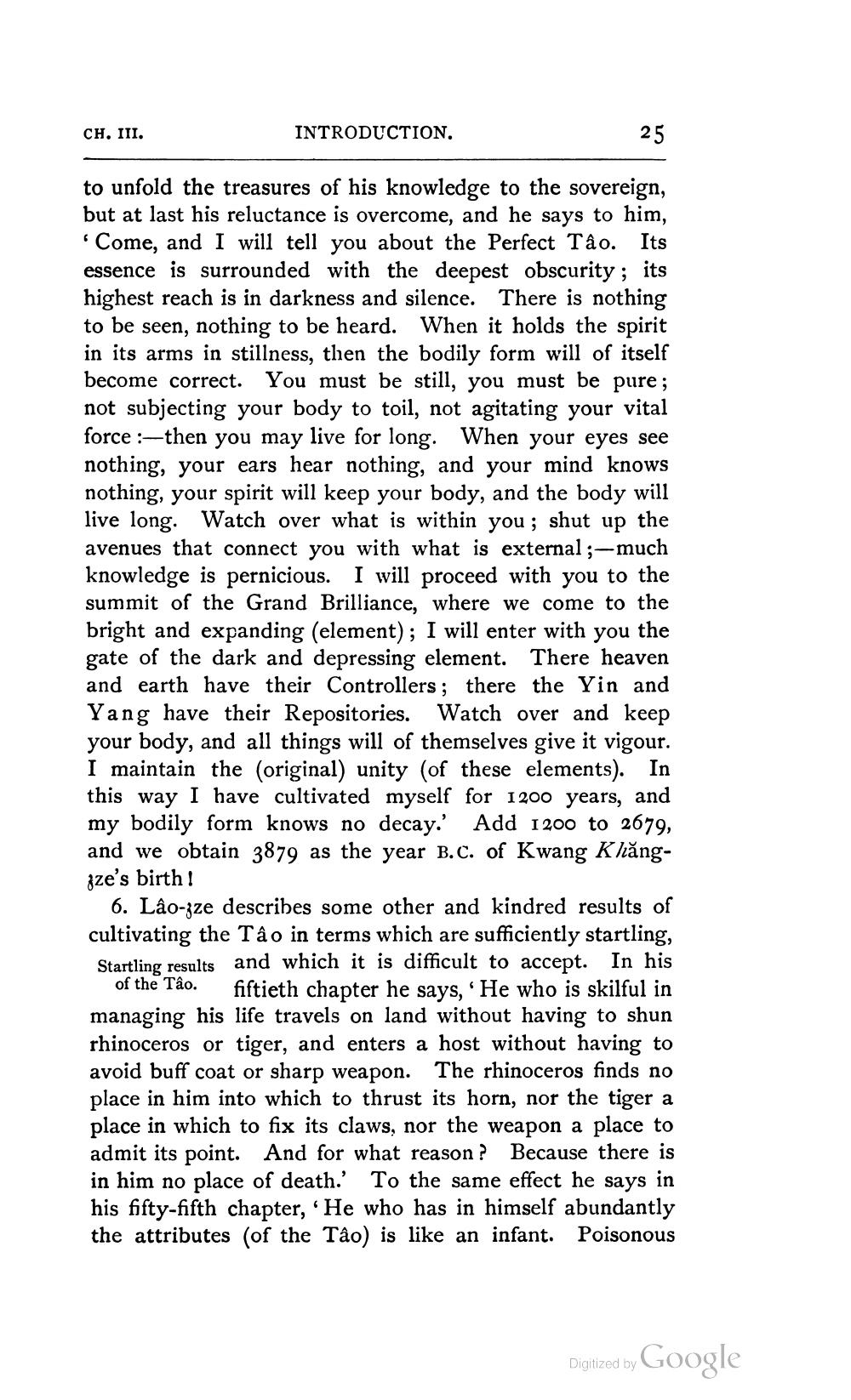________________
CH. III.
INTRODUCTION.
25
to unfold the treasures of his knowledge to the sovereign, but at last his reluctance is overcome, and he says to him, 'Come, and I will tell you about the Perfect Tâo. Its essence is surrounded with the deepest obscurity; its highest reach is in darkness and silence. There is nothing to be seen, nothing to be heard. When it holds the spirit in its arms in stillness, then the bodily form will of itself become correct. You must be still, you must be pure; not subjecting your body to toil, not agitating your vital force-then you may live for long. When your eyes see nothing, your ears hear nothing, and your mind knows nothing, your spirit will keep your body, and the body will live long. Watch over what is within you; shut up the avenues that connect you with what is external ;-much knowledge is pernicious. I will proceed with you to the summit of the Grand Brilliance, where we come to the bright and expanding (element); I will enter with you the gate of the dark and depressing element. There heaven and earth have their Controllers; there the Yin and Yang have their Repositories. Watch over and keep your body, and all things will of themselves give it vigour. I maintain the (original) unity (of these elements). In this way I have cultivated myself for 1200 years, and my bodily form knows no decay.' Add 1200 to 2679, and we obtain 3879 as the year B. C. of Kwang Khăngzze's birth!
of the Tâo.
6. Lâo-zze describes some other and kindred results of cultivating the Tâo in terms which are sufficiently startling, Startling results and which it is difficult to accept. In his fiftieth chapter he says, 'He who is skilful in managing his life travels on land without having to shun rhinoceros or tiger, and enters a host without having to avoid buff coat or sharp weapon. The rhinoceros finds no place in him into which to thrust its horn, nor the tiger a place in which to fix its claws, nor the weapon a place to admit its point. And for what reason? Because there is in him no place of death.' To the same effect he says in his fifty-fifth chapter, 'He who has in himself abundantly the attributes (of the Tâo) is like an infant. Poisonous
Digitized by Google




